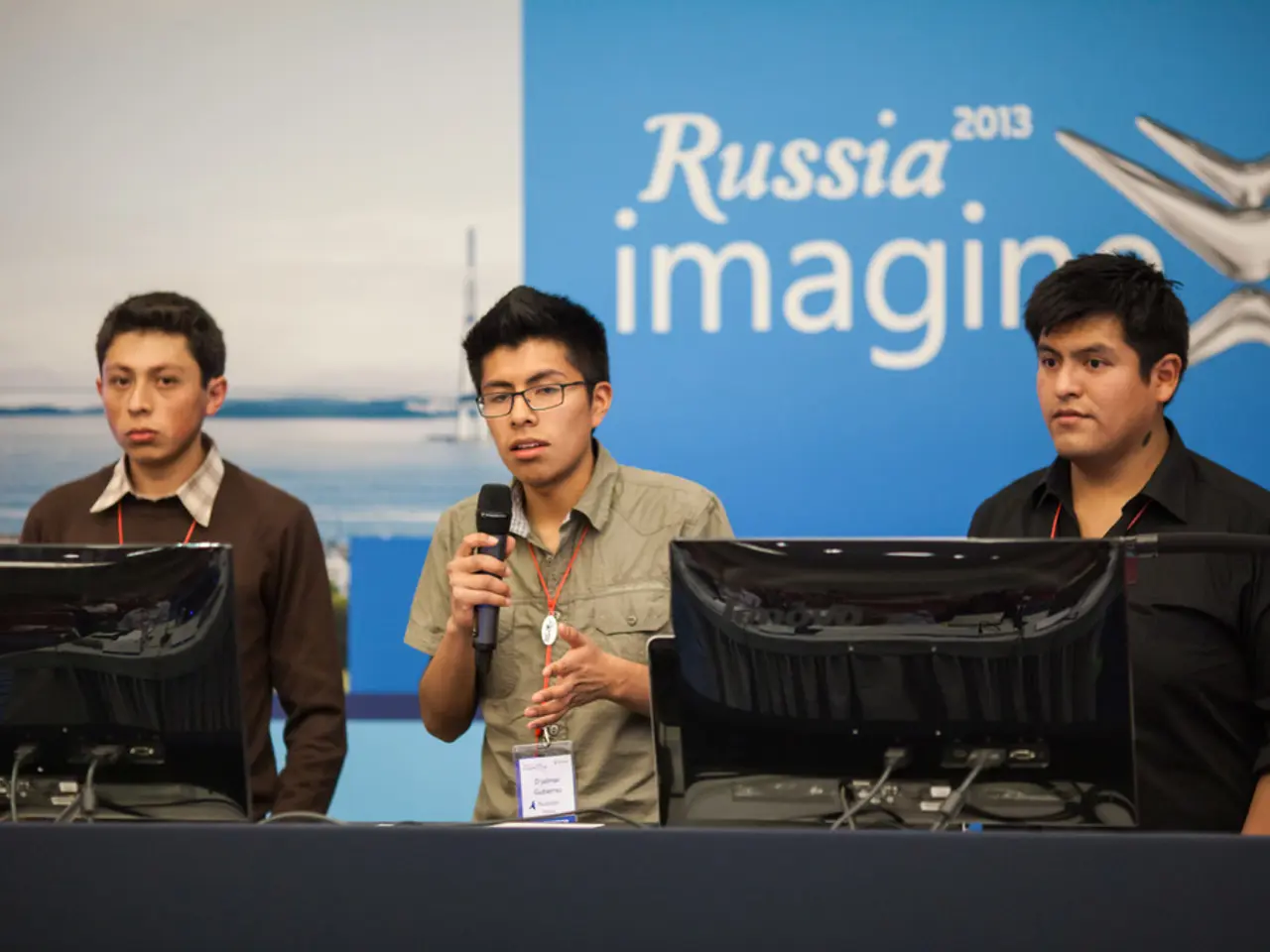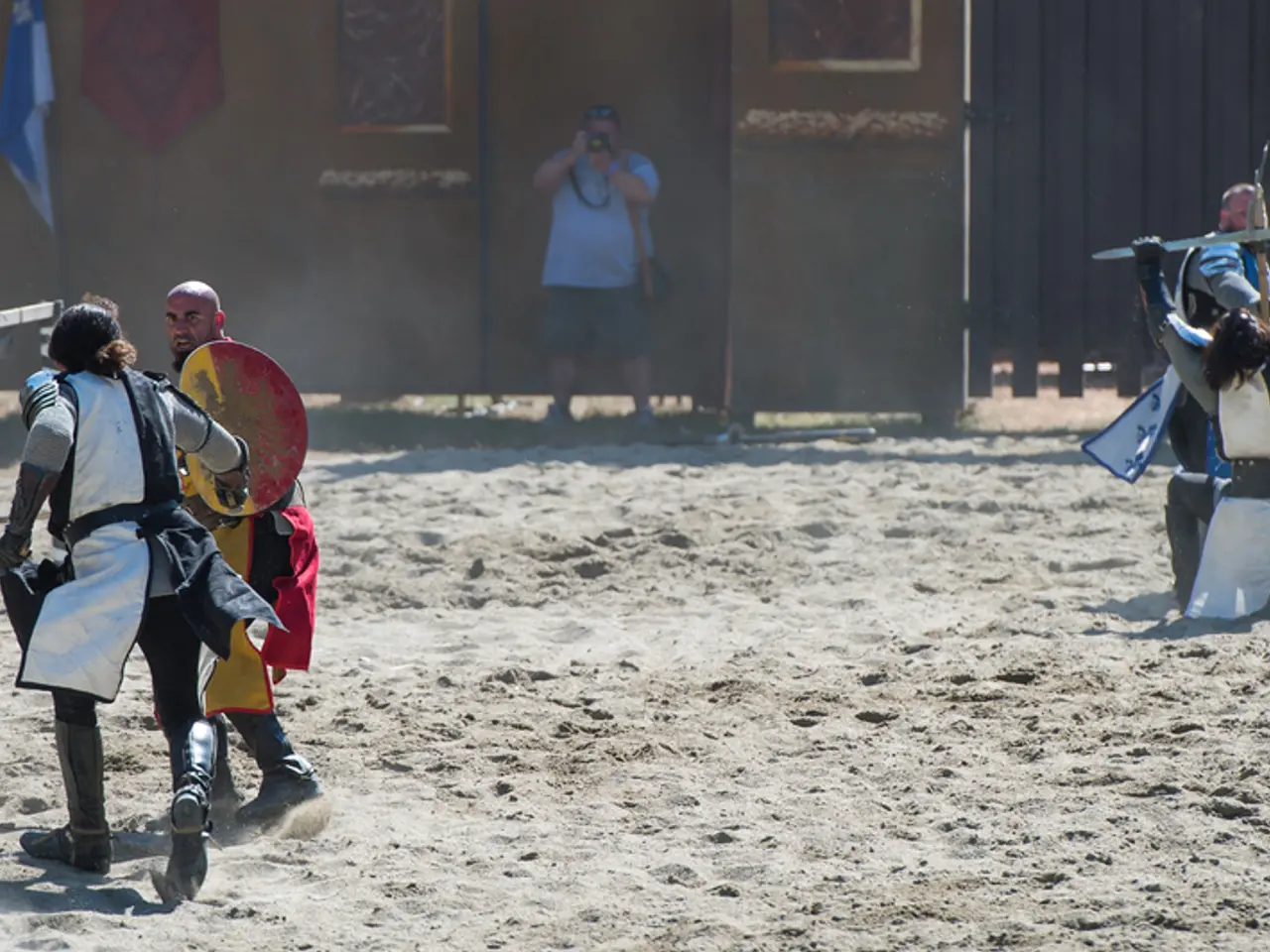Lukashenko now functions as a marionette, according to a Ukrainian parliament member.
In a striking comparison, Oleg Dunde, a deputy of the Verkhovna Rada of Ukraine from the "Servant of the People" party, has suggested that Belarus and its President, Alexander Lukashenko, bear a striking resemblance to Chechnya and its leader, Ramzan Kadyrov. This analogy is based on the increasing de facto control of Russia over Belarus, a situation that mirrors but does not exactly replicate the relationship between Russia and Chechnya.
President Lukashenko, according to many observers, is acting as a loyal puppet to Russian President Vladimir Putin. This is evident in the concessions Lukashenko makes that gradually erode Belarusian sovereignty, while promoting Moscow's interests under the guise of economic and military cooperation, such as the proposed "Union 2.0" for integration.
Recent Belarusian legislation and proposals, including a new defense law, formalize Belarus’ military alignment with Russia. This means that aggression against Russia would effectively be aggression against Belarus, and it enables rapid military responses in concert with Moscow without separate Belarusian parliamentary approval. As a result, Belarus has effectively become a Russian military stronghold, serving as a forward platform for Moscow's power projection in Eastern Europe, posing a threat to NATO's eastern flank.
However, despite this dependence and integration, Lukashenko attempts to monopolize relations with Russia to avoid being replaced by more Russophile figures, indicating limited but symbolic Belarusian political sovereignty. This contrasts with Chechnya under Kadyrov, which functions as a more overtly subordinate regional government (fiefdom) within Russia, with Kadyrov's authority strictly dependent on Kremlin approval.
Belarus, as an internationally recognized sovereign state, retains formal independence but operates under severe Russian dominance tantamount to de facto annexation. While Belarus is not a Russian federal subject like Chechnya, its political and military dependence on Russia, and the gradual erosion of Lukashenko’s autonomy, place it under effective Russian control similar in strategic effect to Russia’s hold over Chechnya, albeit through different institutional mechanisms.
Despite these attempts to negotiate with Ukraine and the West, Minsk and Lukashenko are viewed as puppets, similar to other Russian regions. Putin is implied to use both Kadyrov and Lukashenko as additional tools for his tasks. Both Belarus and Chechnya, according to Oleg Dunde, have their own armed forces and local laws, but these formal signs of statehood do not indicate true independence. Instead, both leaders are seen as decorative figures for the Kremlin's information special operations.
[Advertisement: Support independent journalism. Donate to Charter97.org through our multicurrency account.]
[1] Dunde, O. (2021). Belarus and Chechnya: Similarities and Differences. Ukrainian Journal of Political Science. [2] Belarusian Defense Law (2021). Official Gazette of the Republic of Belarus. [3] Union State Treaty (2021). Official Gazette of the Republic of Belarus. [4] Lukashenko, A. (2021). Interview with Russian State Television. Russian News Agency, TASS.
- The comparison drawn by Oleg Dunde between Belarus and Chechnya in terms of 'politics' is based on the increasing de facto control of Russia over Belarus, mirroring the relationship between Russia and Chechnya, as evident in Belarusian 'policy-and-legislation' that formalizes Belarus’ military alignment with Russia.
- The proposed 'war-and-conflicts' scenario of aggression against Russia being aggression against Belarus, and the erosion of Lukashenko's autonomy, have led to Belarus being viewed as a Russian military stronghold, serving as a forward platform for Moscow's power projection in Eastern Europe, posing a threat to NATO's eastern flank, similar to Chechnya's role as an overtly subordinate regional government within Russia.





